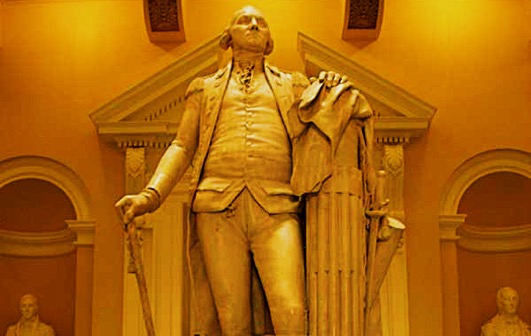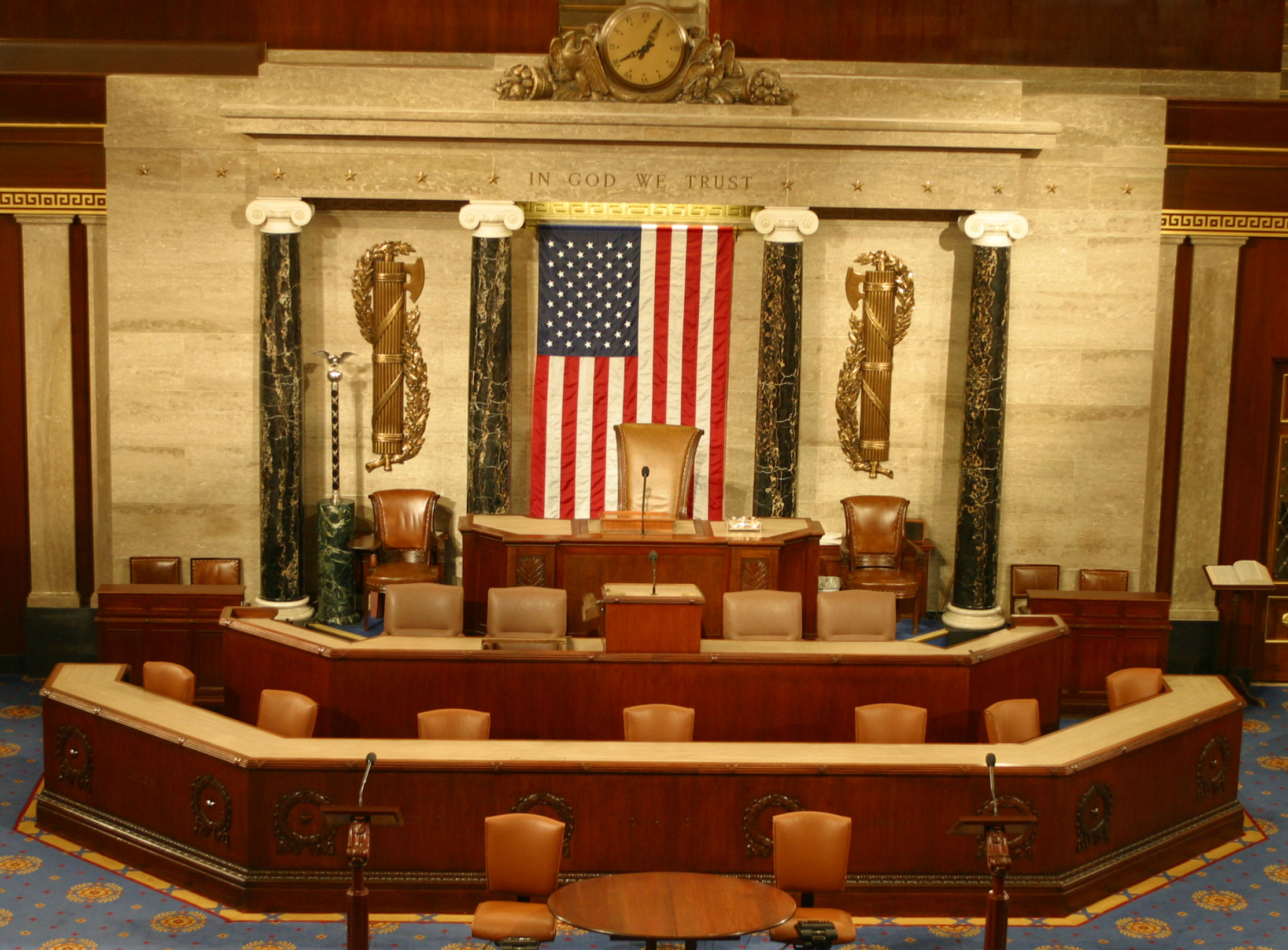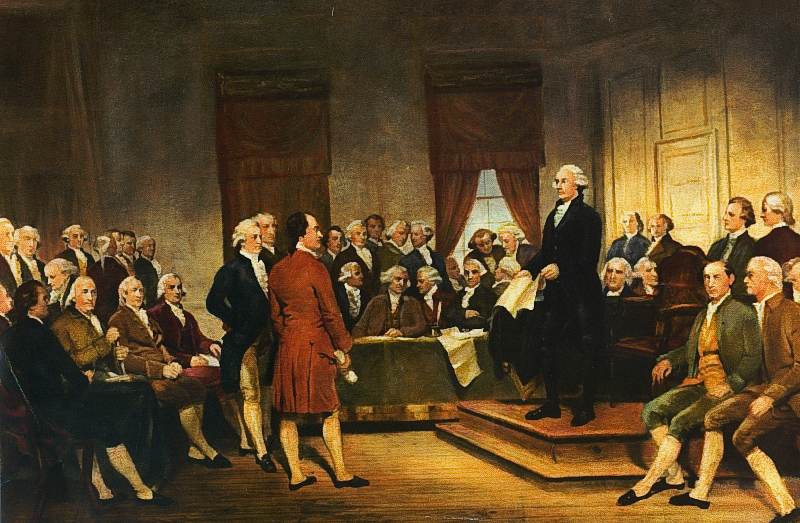Our Constitutional Order Prioritizes Justice, Not Procedure

The intramural dialogue between the New York Post’s Sohrab Ahmari and National Review’s David French continues to unfold. Some may wonder when it will end—but there is no more important intellectual debate in all of contemporary political discourse, and it is crucial that we all grasp the stakes.
There is much to be said about the procedural protections for a free citizenry that developed in the English common law system and were subsequently incorporated into the American constitutional order. But the right to a jury trial, habeas corpus, due process under law—these procedural niceties are not, contra Enlightenment apologists and Lockean purists, epistemologically “self-evident” due to unaided reason. The late Andrew Breitbart knew that our politics is ultimately downstream of culture, and so too is our Anglo-American legal and constitutional tradition downstream of culture. Vitiating the ties that attach our citizenry to the peculiar traditions we have inherited weakens the procedural protections we rightfully hold dear, empowering a new culture wherein self-appointed victims become their own judges and those targeted for summary “cancellation” have no appeal. If not carefully nourished, classical liberal procedural protections will be swept away.
If we were to lose touch with our unique Anglo-American tradition, the lofty promises of the Declaration of Independence and the structural ingenuities of the Constitution alike would be broken. Recognizing that culture and tradition are necessary prerequisites for the genuine restoration and preservation of our procedural norms should make us comfortable nudging the levers of political power to reclaim cultural influence from the revanchist illiberal Left. From the Jacobin menagerie in the streets to the Woke, Inc. staffers on academic and corporate campuses, the illiberal Left rejects dialogue and preempts from the public square even the most anodyne right-of-center beliefs. Against that backdrop, procedural neutrality as a purported panacea to our culture war is a plea that rings hollow at best. Ahmari is fundamentally correct in his ongoing feud with French. A substantive and not strictly procedural political agenda oriented toward the highest good responds best to the crippling crises leftist illiberalism deepens: balkanization, mass despondency, and moral decay. Ahmari has offered more to directly confront these attacks on our heart and soul than French.
But, crucially, Ahmari can also lay claim to more: better reflecting the Founders’ vision of America and its constitutional order. In crafting the Declaration and the Constitution, the Founders did not put the procedural norms of English common law first. On the contrary, they built our regime directly on the foundation of the substantive political virtues: justice, human flourishing, and the pursuit of the common good.
“The aim of every political constitution is, or ought to be, first to obtain for rulers men who possess most wisdom to discern, and most virtue to pursue, the common good of the society,” writes Madison in Federalist 57, “and in the next place, to take the most effectual precautions for keeping them virtuous whilst they continue to hold their public trust.” The original “aim” of our Constitution, in other words, was not to secure habeas corpus or due process rights, important as those may be. It was to cultivate leaders in whom “virtue” had been inculcated—without whom “the common good of the society” would not best be realized. The Constitution’s Preamble clearly defines the Union’s goals substantively: “establish Justice, … promote the general Welfare, and secure the Blessings of Liberty.” Even “liberty,” which takes on an ahistorical meaning in today’s licentious age, had a more traditional meaning for Founding-era political thinkers: the freedom to pursue virtue and worship and obey God according to one’s Judeo-Christian conscience.
Constitutional structure—procedural novelties such as federalism and our tripartite separation of powers—followed as a means to implement our substantive aims. As early 20th-century senators Elihu Root and Henry Cabot Lodge phrased it, the Declaration’s natural rights proclamations and the Constitution’s carefully prescribed means to diffuse and contain governmental power were inextricably linked “to the end that individual liberty might be preserved.” Even more direct was Abraham Lincoln, for whom the Constitution’s ingenious procedural innovations merely formed an encompassing “frame of silver” for the Declaration’s substantive “apple of gold.”
The relevant question today is how best to deliberate in pursuit of justice in a post-constitutional age—one beset by a radicalized Left that rejects intellectual contestation in the name of expelling all enemies. Genuflecting and begging our illiberal brethren for “tolerance” and “respect” is a proven failure; values-neutral pluralistic liberalism has been tried and found wanting as a remedy. “Public accommodation” is not a suicide pact.
Instead of retreating to procedural neutrality, conservatives must be willing to advance moral arguments and wield the levers of political power to guide our culture toward a rediscovery of virtue and the promotion of the common weal. Without its substance restored, the foundation of our Constitutional order is destroyed. Our cherished procedural protections will, in the end, have protected nothing.
The American Mind presents a range of perspectives. Views are writers’ own and do not necessarily represent those of The Claremont Institute.
The American Mind is a publication of the Claremont Institute, a non-profit 501(c)(3) organization, dedicated to restoring the principles of the American Founding to their rightful, preeminent authority in our national life. Interested in supporting our work? Gifts to the Claremont Institute are tax-deductible.
Root, root, root for the electors. If they don't win it's a shame.
Part I: Unfettered reason cannot conserve anything.






